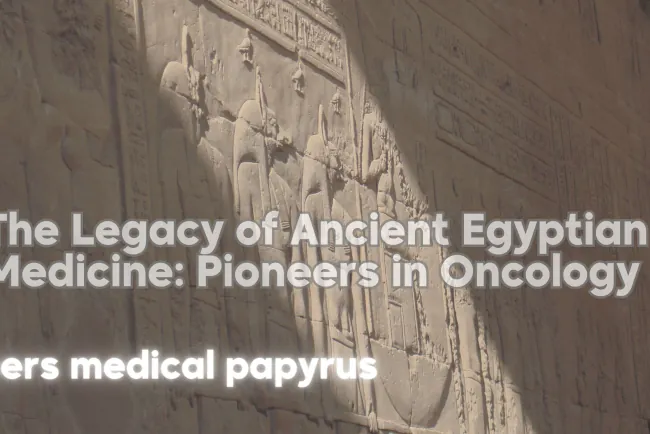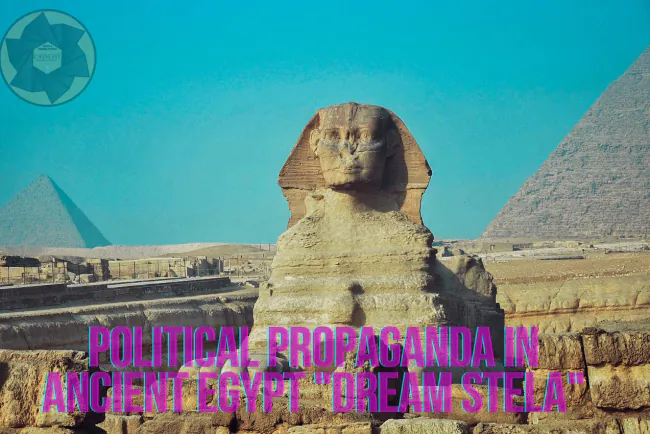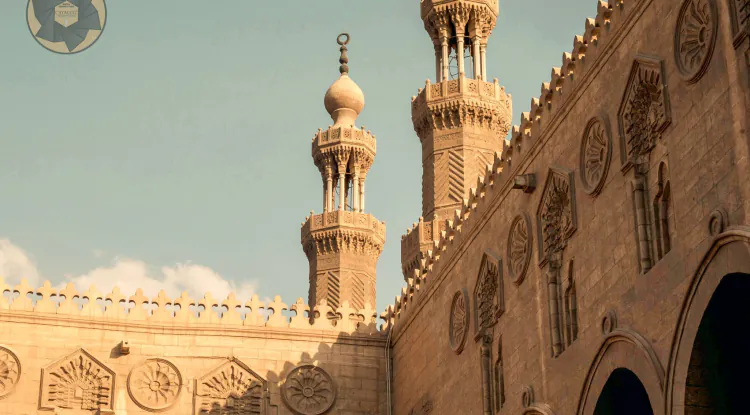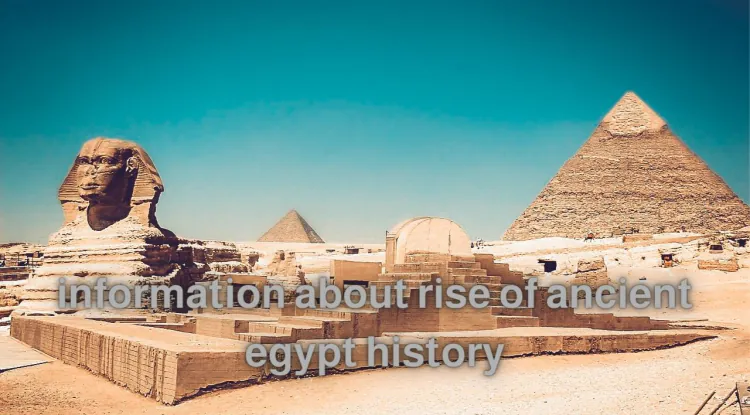Egypt's social revolution at the end of the Old Kingdom
It seems that this mysterious, turbulent period called the First Middle Ages began at the end of the rule of King Pepi II, and includes firstly the collapse of the monarchy and the first class revolutions, secondly: the establishment of the Seventh and Eighth Dynasties, and thirdly: the establishment of the Ninth and Tenth Dynasties, and it separates the first aspect of Egypt’s developed and prosperous history. And the second dark, standing, disturbed face.
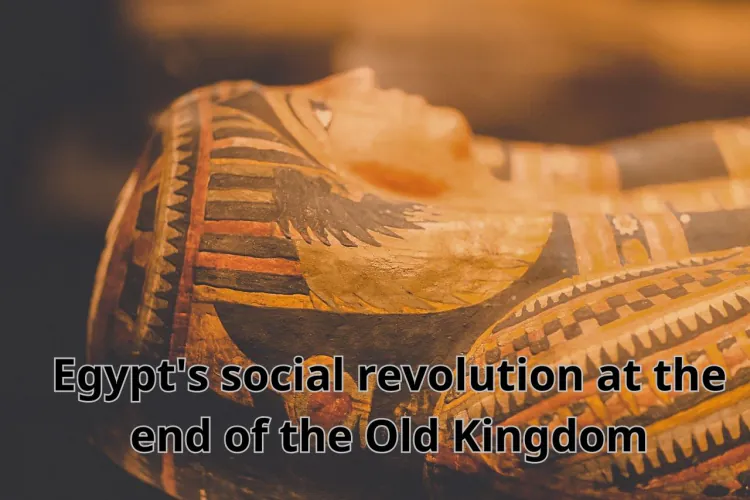
There is no doubt that when a researcher in the history of ancient Egypt reaches the “era of the first social revolution,” many problems appear before him and need to be solved, and the first thing that comes to his mind is knowing the motives of this revolution that the Egyptians carried out against the existing situation in their country at that time.
That revolution that the Egyptians carried out against their king, whom they believed was sacred, but in fact the revolution was not against the deified king alone, but rather against the system itself, against the pharaoh and against the priests, and even against the gods themselves as well as the rulers of the regions, where decentralization appeared. In the late Old Kingdom era, when she was fed up with the divinity of the Pharaoh and lifted the aura of reverence that surrounded her.
Egypt reached a very bad state at the end of the Old Kingdom as a result of the long reign of King Pepi and his long lifespan, which made things go from bad to worse. Senior statesmen tried to strip the kings of their authority, and they succeeded in doing so to a great extent. .
When Egypt reached its nadir in the late days of the Sixth Dynasty, and chaos had spread throughout the country, the people had no choice but to revolt against those bad conditions, and they wanted revenge for themselves. The people wanted to revolt against all the corrupt administrative systems, including the king himself.
Misery increased during the reign of King Pepi II, who succeeded his brother Merenre. The new king must have been only a boy at the time of his accession to power, as the Turin Papyrus mentioned that he had ruled for more than ninety years.
King Pepi II (Neferkare):
King Pepi II is one of the kings of the Sixth Dynasty in the Pharaonic history of Egypt. He assumed power after his brother, Meri-an-Ra. On the occasion of Pepi II’s accession to the throne in his childhood, his reign was long. Manetho mentioned that this king assumed He ruled in the sixth year and lived for a hundred years, and that his mother was his guardian, and his uncle, Prince Zhao, was his minister at the same time, and he had the upper hand in running the affairs of the country.
The name of this king was associated with the campaigns that he sent to the south under the leadership of the ruler of “Elephantine”, the most famous of which were “Harkhuf”, “Pipi-Nakht”, and “Mikho” (Ni-Sab). There is also an inscription dedicated to King Pepi that describes to us a great campaign launched by King Pepi against the Asian Bedouins. who invaded the country.
During this period, Egypt was in need of a strong king who had influence and authority to restrain the regional rulers whose loyalty to the central government had weakened. Which made the king offer them lands and fiefdoms to link their income to their cemeteries, which strained the treasury.
Their only concern was obtaining more power and money without concern for the conditions of their subjects, but King Pepi II was not strong, and therefore he was not able to manage matters, and the governors of the regions began to rob him of his powers whenever they could.
Causes of revolution:
There is no doubt that the people did not reach this feeling of anger against all their sacred things until the state of the country - in the late Sixth Dynasty - reached its nadir, as a result of various factors - economic, social, political and psychological - and popular awareness at that time had reached a point that pushed The revolutionaries want to carry out their revolution, and therefore the reasons for the revolution can be limited to five reasons:
Economic reasons:
We find that the economic factor played an effective role alongside other factors in the weakness that threatened the entity of the Egyptian state, and the most beautiful reasons are several, including the burden of constructing buildings that threaten the state’s economy, such as each new king building a tomb for himself and allocating allocations and permanent endowments to the tombs of kings, queens and princes, which deprives the state. From a large portion of income as a result of being deprived of these endowments.
There is also the possibility of the interruption of resources that were coming from foreign trade, especially when the kings were unable to provide security and stability in the country and the distant parts of Nubia, Sudan, and others, which had a bad impact on Egypt economically and politically. This is in addition to the kings’ attempt to gain the satisfaction and support of the rulers of the various regions, which put pressure on Egypt. From the Egyptian economy a lot, and we will talk about these factors in some detail:
Building tombs is represented by kings building huge temples and tombs that consume the Egyptian economy. Every Egyptian king who ascended the throne at that time built a pyramid for himself, the purpose of which was to immortalize the king’s name. These pyramids were built one after another in every generation. The pyramids and other religious buildings are a result of the influence of religion on the Egyptians and its impact on their lives and thinking - and it was, is and will remain - the greatest force in human life.
However, this ancient Egyptian doctrine and the huge, enormous buildings that resulted from it exhausted the national economy and placed a heavy burden on the state’s coffers. If we believe Herodotus’ story that building the Great Pyramid took twenty years, and one hundred thousand men worked on it and were replaced by others every three months, Building a high road to transport the stones used in building the pyramid itself took ten years, and this work is no less difficult than building the pyramid itself.
The second economic reason was the burden resulting from permanent donations to be spent on the tombs of kings and queens, as well as princes and nobles. Hence, the kings used to deprive part of the lands of the natural economy, imposing heavy consequences on other lands, and these endowments amounted to a large amount of money. I wish the matter had been limited to that. Indeed, the princes of the regions had carved their graves in the rocks of their regions - especially in Upper and Middle Egypt - and this was a new burden on the treasury.
As for the third economic reason, it is the kings’ attempt to gain the satisfaction and support of the rulers of the various regions, which led to an increase in the spirit of self-confidence among these rulers. They considered themselves either masters of the region or employees of the king, depending on the strength or weakness of the monarchy, and at a time when the inheritance of position and status was a religious grant from the king. God who owns everything, including the afterlife, this grant has become a political right.
As for the fourth economic reason, it is the interruption or possible interruption of the resources that came from foreign trade, which was a royal monopoly. Egypt was in trade relations with the countries of Western Asia, with the islands of the Mediterranean, and with Nubia, Libya, and the countries of Punt, and the texts of the late state indicate to us. Ancient times indicate that there were disturbances in those foreign countries with which Egypt was trading.
Social reasons:
Thus, ancient Egyptian society initially consisted of two classes, with a clear difference between them: the senior state officials, the princes of the regions, and the high priests, and then a lower class, which is the hard working class, consisting of agricultural and industrial workers, fishermen, navigators, shepherds, servants, and all craftsmen who work in public and private services.
Thus, we find that one of the causes of the revolution was perhaps the result of the dominance of a special class over all the important jobs in the country, and perhaps as a result of badly exploiting these important jobs. It is true that Egypt called for theoretical equality, but the weakness of the kings in front of the power of the regional rulers and their tendency toward individualism made theoretical equality This is irrelevant, and therefore the system of separate classes remained recognized until the revolution.
Political reasons:
The causes of the political revolution are due to the weakness of the monarchy and its failure towards the rulers of the regions. This weakness began in the middle of the Fifth Dynasty and then intensified in the Sixth Dynasty, especially during the long days of King Pepi II, which prompted him to appoint two ministers, one for Upper Egypt and the other for the Delta, in the hope of To help him protect his throne. Despite this, the rulers continued to impose heavy taxes and refrained from supplying them to the treasury, so sending missions to the mines stopped, and the threat of Asian migrations was renewed, which ultimately led to the revolution.
Events of the revolution:
Historians agree - or almost unanimously - that the era of the first social revolution includes the seventh to tenth dynasties, and that it ends in the days of Mentuhotep I, who is destined for long-term success in eliminating chaos and reuniting the land of Canaan again - as did his distant predecessor, Menes. Before - Sir Alan Gardner believes that the real knot in the matter is a historical one.
There is a great deal of disagreement among historians about the length of this period, and although most modern opinions agree to estimate the period from the reign of Queen “Neito Chris” to the end of the rule of King “Mentuhotep I” as two hundred and fifty years, this is nothing more than a mere guess. In any case, there is Who estimates the era of the first social revolution to be about “228 years” in the period from (2280 - 2052 BC).
This period is considered one of the most important historical periods because of the new spirit that ancient Egyptians had never known before, which resulted from the upheaval of the political and economic conditions of society and thus the collapse of the state building as a result of the social revolution.
This revolution dealt with many documents expressing the confusion and despair that gripped the ancient Egyptian man when he saw that his society, with its gods, to whom all reverence and appreciation were held, and a stable, immutable life like the pyramids in their immortality, all of this had been overturned, collapsed, and had signs of weakness and dissolution.
Egypt fell into a deep abyss of decline after the death of King Pepi II. The edifice of monarchy collapsed, and the country’s central authority deteriorated. Consequently, the influence of the regional rulers increased - as we mentioned - and the people began to think about revolution, a revolution against the sanctity of kings and the sanctity of gods. Fear spread, misery prevailed, and turmoil spread throughout all parts of the world. The country.
The most important results of the social revolution:
Creating a kind of awareness among thinkers who are proud to be unable to ward off the affliction from the country and who are proud to be alert to signs of danger and that the country’s sanctities are being violated. “Ibor” expressed this awareness when he said, “I wish I had spoken out loudly before, and that would have saved me from the torment still suffering.
After the end of the revolution, a new class emerged that does not take pride in lineage or lineage as much as it cares about individuality and individual effort, and the individual in it is proud that a citizen is able to speak inspired by himself.
What's Your Reaction?







